Iran Update, June 7, 2024
Jun 7, 2024 - ISW Press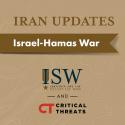
Hamas leader in the Gaza Strip Yahya Sinwar indicated opposition to the latest Israeli ceasefire proposal, according to unspecified Arab officials.

Hamas leader in the Gaza Strip Yahya Sinwar indicated opposition to the latest Israeli ceasefire proposal, according to unspecified Arab officials.
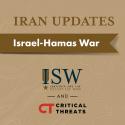
Hamas reportedly said that it will reject the Israeli ceasefire proposal, arguing that the proposal does not ensure a permanent end to hostilities. Saudi-based media obtained a copy of a Hamas memo to other Palestinian militias in which Hamas explained that Hamas did not accept the proposal because it is "fundamentally different" from the proposal that US President Joe Biden outlined on May 31.
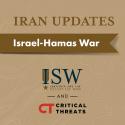
A Syrian Arab Army (SAA)-affiliated source reported on June 4 that the Syrian Defense Laboratories Corporation manufactured rockets that Lebanese Hezbollah has used to conduct attacks against Israeli positions in northern Israel
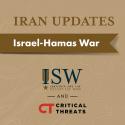
A senior Hamas official responded negatively on June 4 to the latest Israeli ceasefire proposal for the Gaza Strip. Hamas appears unlikely to accept a proposal that does not meet the maximalist demands that Hamas has maintained since December 2023. Hamas Political Bureau member Osama Hamdan said Hamas cannot agree to a proposal that does not guarantee a permanent ceasefire, the complete withdrawal of Israeli forces from the Gaza Strip, and a hostage-for-prisoner exchange. Hamdan called on international mediators to obtain a clear Israeli commitment to these demands. Hamdan added that all Palestinian factions share Hamas’ position. Hamas remains confident that it will survive Israeli military operations in the Gaza Strip and can therefore maintain its maximalist demands without granting major concessions.
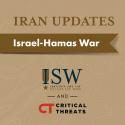
Israeli Prime Minister Benjamin Netanyahu said on June 3 that Israel will not agree to a permanent ceasefire until Israel achieves its war objectives. US President Joe Biden outlined the latest Israeli ceasefire proposal and encouraged both Hamas and Israel to accept it during a speech on May 31. He said that the proposal includes an initial six-week ceasefire with a partial Israeli military withdrawal and the release of some hostages while Hamas and Israel negotiate a permanent end to hostilities. Netanyahu said on June 3 that Biden’s outline of the proposal was only “partial.”
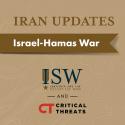
Unspecified US and Israeli officials said that Israel adjusted its military operations in Rafah to avoid crossing the US Joe Biden administration’s red lines. Israel originally planned to deploy two divisions to conduct clearing operations in Rafah. The United States expressed concern that such action could increase civilian casualties significantly. President Biden said on May 8 that the United States will stop supplying Israel with certain weapons if Israel conducts a major military operation into Rafah. The latest reporting is consistent with other reports that Israel was planning a limited attack targeting Hamas in Rafah and that the IDF is moving “more deliberately” in Rafah.
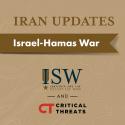
US President Joe Biden urged Hamas to agree to the latest Israeli ceasefire and hostage-release proposal on May 31.
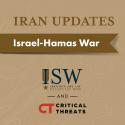
Israel withdrew some IDF units from Jabalia in the northern Gaza Strip on May 30, according to local Palestinian sources. The partial Israeli withdrawal from Jabalia follows some of the most intense fighting between Israeli forces and Palestinian fighters during the war.
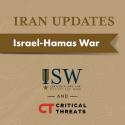
The Israel Defense Forces (IDF) announced on May 29 that it established “operational control” of the Philadelphi Corridor on the border between Egypt and the Gaza Strip. Israeli officials have described Israeli operations along the corridor as meant to disrupt some of Hamas’ primary smuggling routes into the Gaza Strip. Israeli forces have uncovered around 20 tunnels that connect Egypt to the Gaza Strip in recent days. Israel was aware of some of these tunnels beforehand but not all of them. The IDF said that it has communicated with Egypt regarding the tunnels, however, an unspecified Egyptian official speaking to Egyptian media disputed this assertion.
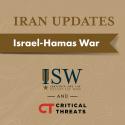
Iran has increased its stockpile of uranium enriched to near weapons-grade levels amid recent statements from Iranian officials about Iran’s ability to procure a nuclear weapon.